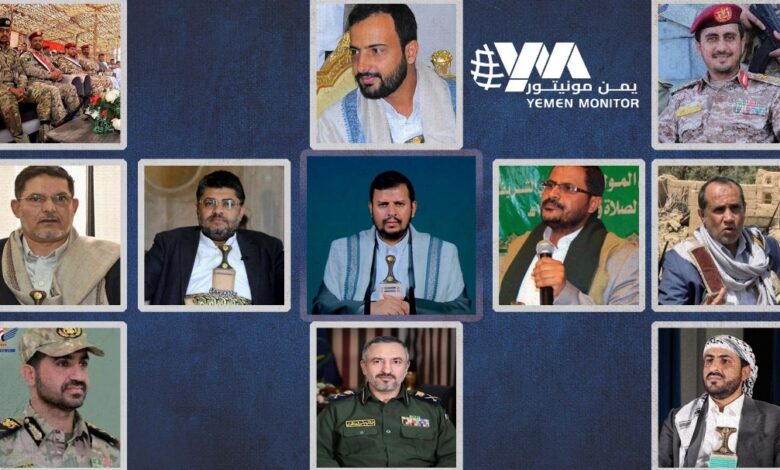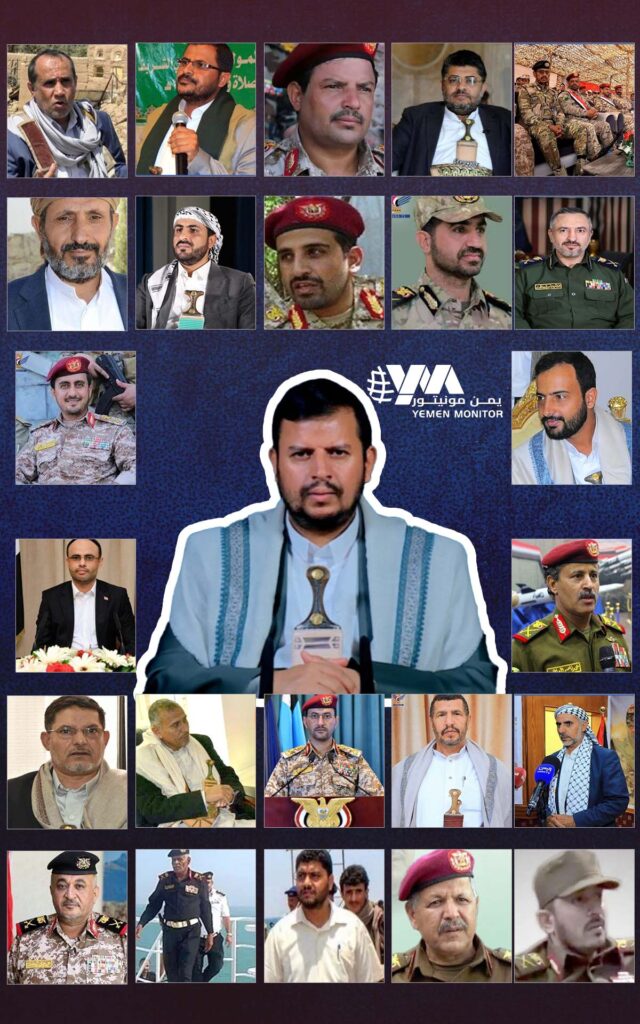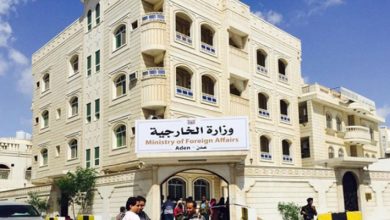The Houthi Leadership: A Potential Israeli or American Target?

Yemen Monitor/ Reporting Unit/ Exclusive:
The Houthi armed group has escalated its maritime attacks and cross-border operations towards the Israeli-occupied Palestinian territories following the assassination of Hassan Nasrallah, the Secretary-General of Hezbollah in Lebanon.
With the growing audacity of the Houthis and their continued attacks on Israel, analysts suggest that Tel Aviv may be prepared to target the group’s leadership, especially after the assassination of Hassan Nasrallah. Other analysts point out that the U.S. may be expanding its strategy to confront the Houthis by targeting their leadership.
On October 4th, the US military stated that it had attacked Iranian-backed Houthi military facilities in Yemen and struck 15 Houthi targets. According to Yemen Monitor sources, four governorates were targeted: “Sanaa, Hodeidah, Dhamar, and Al Bayda,” indicating an expansion of US attacks.
Houthis will not back down.
These strikes come five days after the Israeli Air Force carried out a long-range military operation against Houthi targets in the ports of Ras Issa and Hodeidah. The airstrikes destroyed power plants and fuel tankers at the two ports. This is the second round of attacks since July.
The U.S. states that its attacks against the Houthis aim to stop assaults in the Red Sea. According to Fawzi al-Jouidi, a fellow at the Middle East Council on Global Affairs, it is unlikely that the Houthis will be deterred anytime soon, and they may also target ships in the Indian Ocean.
Al-Jouidi pointed out that they might also seek to “partner with other militias to build an alliance that threatens security in the region.”
There are also powerful Iranian-backed militia groups in Iraq, which remain largely intact, and the Houthis have announced a partnership with them to launch attacks against Israeli occupation.

Failure of the American Strategy
Last July, General Michael Kurilla, the head of U.S. Central Command, wrote a letter to Defense Secretary Lloyd Austin, claiming that current policies had “failed” to have the desired impact on Houthi attacks in the Red Sea, according to The Wall Street Journal.
Kurilla called for a “whole-of-government approach” towards the Houthis, which would include economic and diplomatic pressure in addition to stronger military pressure to deter the Houthi group from its campaign against shipping vessels in the region. He requested that the Biden administration target Houthi leaders.
Indeed, U.S. Central Command provided the names of Houthi leaders responsible for ongoing operations in the Red Sea; however, the Biden administration believed at the time that assassinating Houthi leaders would escalate the conflict in Gaza into a regional war, leading to a division within the Pentagon, where no U.S. soldiers stationed in the Red Sea were killed by the Houthis.
After the assassination of Hassan Nasrallah and Iran’s retaliatory strikes on Israel, which is preparing for counterattacks, the assassination of Houthi leaders would make the prospect of a regional war – from the perspective of U.S. leaders – an irreversible path.
Israeli strikes in Hodeidah indicate that Netanyahu’s government views that Biden’s administration as having failed in its mission against the Houthis, and it will rely on itself to confront them. This may prompt the U.S. to adopt Tel Aviv’s policies, as has been the case since October 7, 2023, shifting from opposition to engagement in Israeli plans.
Israeli Assassinations
Yemeni political analyst Ahmed Haza’a says that the Houthis are now “under Israeli scrutiny.”
Hazaa stated in press remarks: “If Israel is capable of pinpointing Nasrallah’s location despite his security and military precautions, what about the leader of the Houthis? I believe that Israel is capable of striking the Houthi leader and his aides at any time.”
Hazaa added that the Houthis and Hezbollah have exchanged significant military and political expertise in recent years, noting that the assassination of Nasrallah and Israel’s targeting of Hezbollah’s high command structure will undoubtedly affect the Yemeni group.
Yemeni political analyst Khalil Al-Amri remarked that “the rapid collapse of Hezbollah has instilled fear in the Houthi group, which may fall even faster than Hezbollah.”
25 Houthi Commanders
On Sunday, the “Long War Journal,” affiliated with the Foundation for Defense of Democracies—an Israeli-funded think tank that promotes its narrative—published a breakdown of the Houthi leadership structure, highlighting 25 key commanders within the armed group. Among them are the group’s leader, two of his brothers, his uncle, the son of the group’s founder, official spokespersons, and commanders of naval and air forces who have played a significant role in Red Sea attacks.
- Abdul-Malik al-Houthi: The group’s leader.
- Abdul-Khaliq Badr al-Din al-Houthi (Abu Yunis): The Houthi leader’s brother, commander of the Republican Guard (Presidential Reserve), commander of special forces, commander of the central region, and the de facto commander of strategic missile forces.
- Muhammad Ali al-Houthi (Abu Ahmad): Member of the Supreme Political Council, head of the Supreme Revolutionary Committee, and oversees supervisors in all governorates.
- Abdul Karim Amir al-Din Hussein al-Houthi (the leader’s uncle): Minister of Interior, director of the Houthi group’s executive office.
- Ali Hussein Badr al-Din al-Houthi: Son of the founder Hussein al-Houthi, deputy interior minister, and de facto commander of the emergency and central security forces.
- Mahdi al-Mashat: President of the Supreme Political Council (a parallel institution to the presidency), and the Houthi leader’s private secretary.
- Ahmad Muhammad Yahya Hamed (Abu Mahfouz): Director of the presidential office, chairman of the Supreme Council for the Management and Coordination of Humanitarian Affairs and International Cooperation, and head of the group’s media.
- Safar al-Sufi (Abu Yusuf): Director of the Houthi leader’s office.
- Abdul-Hakim Hashim al-Khaiwani (Abu al-Karar): Head of the security and intelligence apparatus.
- Abdul Salam Salah (Muhammad Abdul Salam): Head of al-Masirah Network, official spokesperson, head of the negotiating delegation, and the oil sector’s key figure.
- Sheikh Difallah Rasam: Head of the tribal cohesion council.
- Yusuf Ihsan Ismail al-Madani: Commander of the 5th Military Region (Red Sea).
- Muhammad Ahmad Ahmad Muftah: First Deputy Prime Minister, scholar, and head of the Supreme Committee for Supporting Al-Aqsa.
- Ihsan al-Hamran: Head of the Central Jihadi Preventive Security Apparatus.
- Muhammad Abdul Karim al-Ghamari: Chief of Staff of the Armed Forces in the Houthi government.
- Mutlaq Amir al-Marani: Deputy head of the security and intelligence apparatus.
- Muhammad Nasser al-Atifi: Minister of Defense in the Houthi government.
- Abdullah Ayida al-Razami: One of the founders of the Houthis, a military commander, and a tribal sheikh.
- Yahya al-Houthi (brother of the Houthi leader): Recently dismissed Minister of Education.
- Yahya Saree: General and military spokesman for the Houthis.
- Saleh Masfer al-Shaer: His current status within the Houthi organization is unknown. He may continue to serve as the commander of the military logistical support organization controlled by the Houthis.
- Mansour al-Sa’adi: Chief of Staff of the Naval Forces and Coastal Defense.
- Muhammad Fadl Abdul Nabi: Commander of the Houthi naval forces.
- Muhammad Ali al-Qadri: Commander of coastal defense forces and director of the Houthi naval college.
- Muhammad Ahmad al-Talbi: Director of arms procurement.
Civilian Concerns in Yemen
As the Houthis increasingly seek to play a larger regional role, fears are mounting among Yemeni civilians, especially regarding potential future Israeli airstrikes on public facilities such as ports and power stations. This concern stems from their witnessing of Israel’s brutality and its deliberate commission of war crimes against civilians in Gaza and Lebanon over the past year.
Yasser Malik, 28, who lives in Sana’a, told “Yemen Monitor”: “Israel is a criminal and a murderer, and it cannot be deterred from launching extensive attacks in Yemen under the pretext of targeting Houthi leaders; rather, the goal is to destroy Yemen and set it ablaze.”
He added: “Twice, the Israelis targeted oil, electricity, and port facilities in Yemen. Their main objective is to starve us, which is a clear war crime, yet other countries have applauded the attacks as if our lives mean nothing.”
Malik agrees with many in Sana’a that the Israeli invasion of Lebanon will escalate Houthi attacks on Israeli forces and in the Red Sea, which will be followed by an Israeli response. “And we, the civilians, will pay the price with new suffering as if the years of previous war were not enough.”





